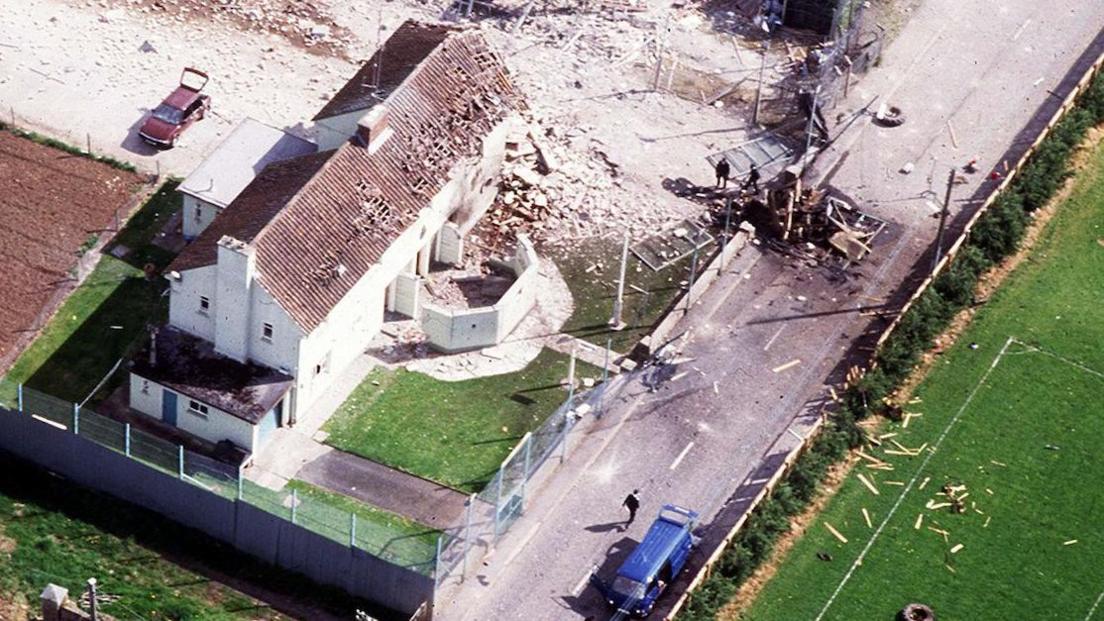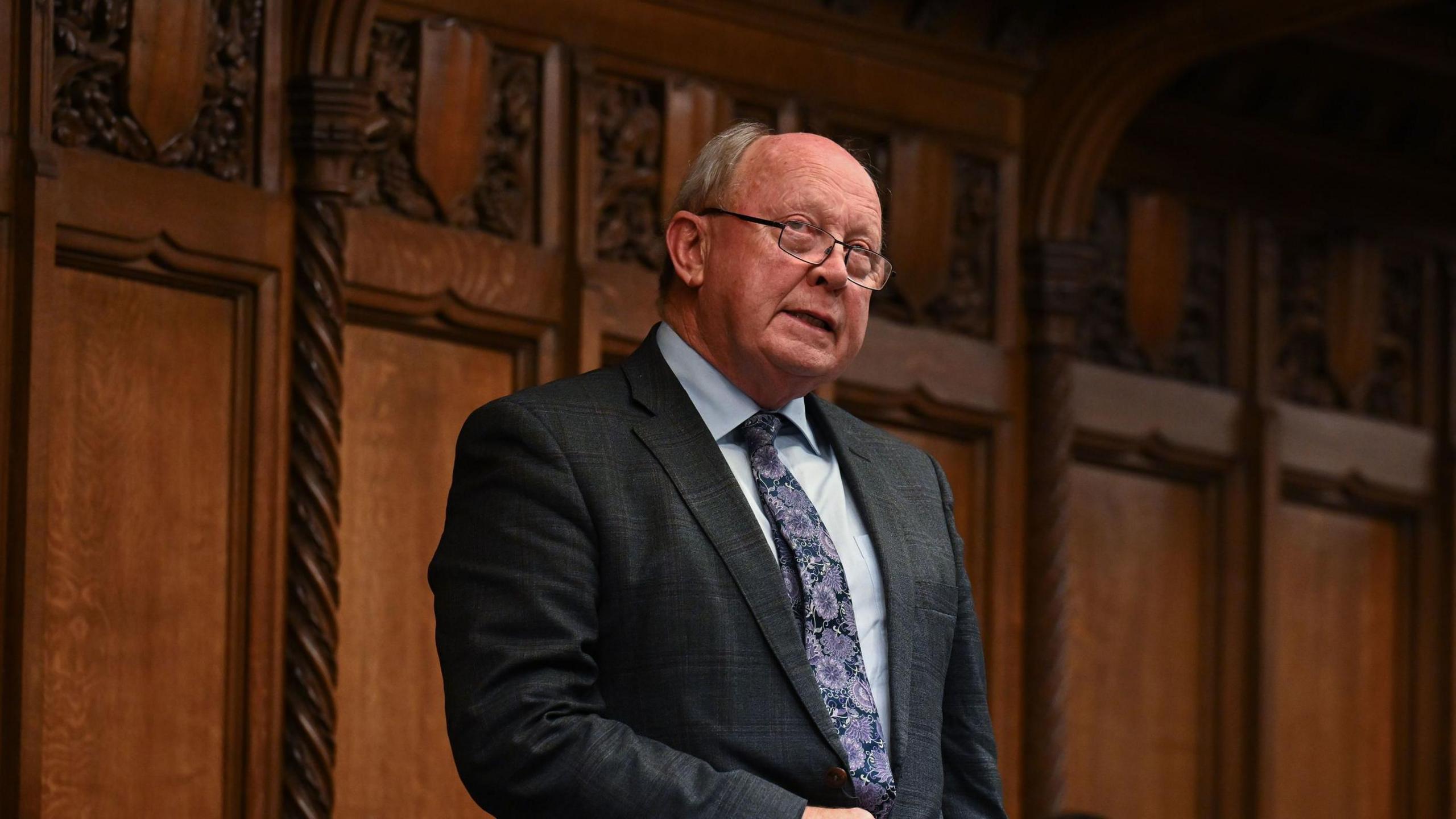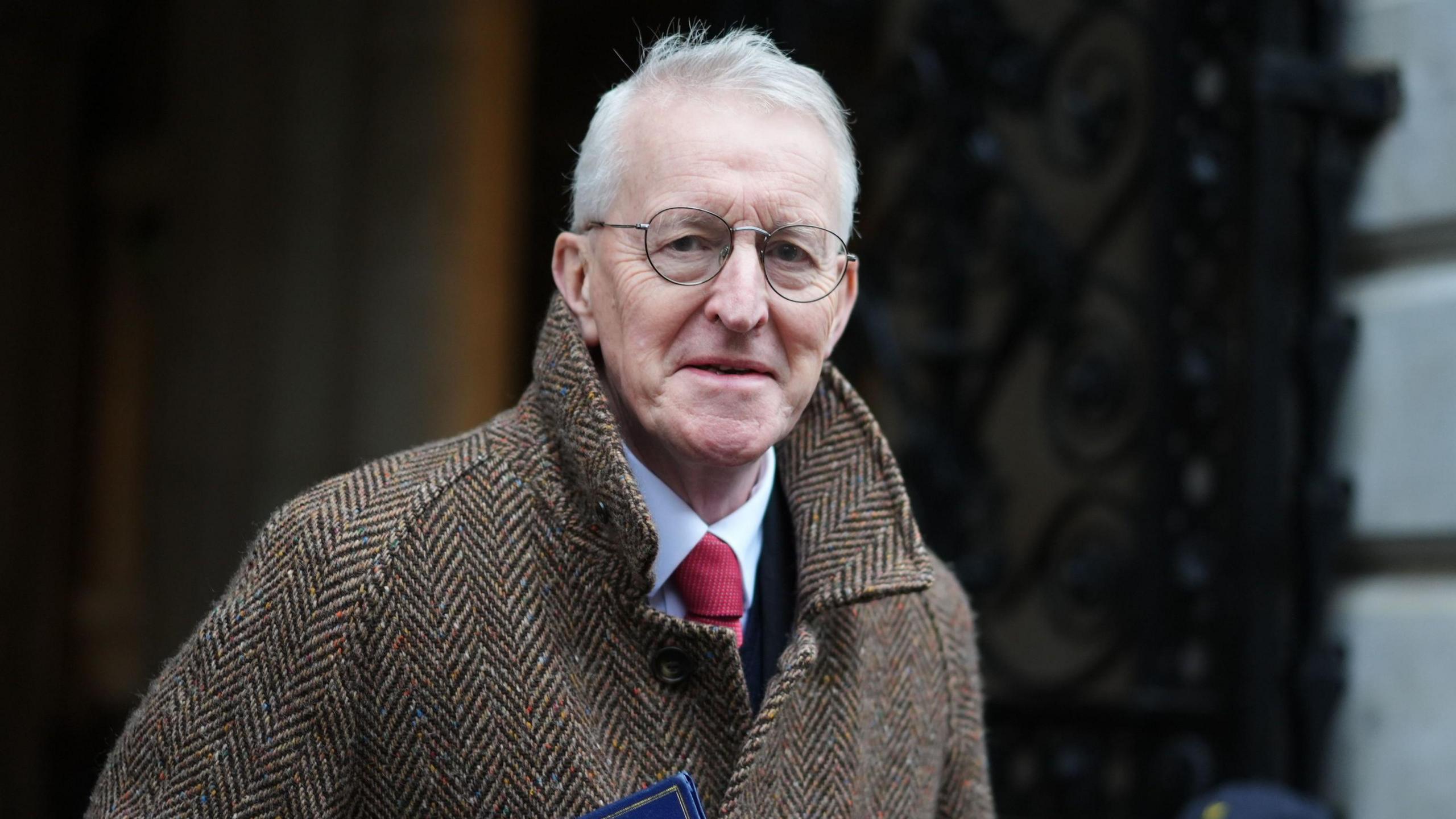Labour's Troubles Bill faces battle as veterans issue resurfaces

One aspect of the bill will see an inquest examining the SAS's use of lethal force at Loughgall in 1987
- Published
The Special Air Service (SAS) ambush at Loughgall, County Armagh, in 1987 was ruthless – 600 bullets were fired, resulting in the deaths of eight IRA men blamed for multiple killings.
Twenty-four soldiers from the elite British Army unit had been lying in wait, as a gun and bomb attack was mounted on a police station.
An innocent passer-by also died in the soldiers' fire.
One aspect of the government's Northern Ireland Troubles Bill will see an inquest held four decades later, examining the SAS's use of lethal force.
The inquest had previously been curtailed.
Veterans may have cause for concern, after a coroner's ruling in February that the SAS was unjustified in shooting dead four IRA men at Clonoe, County Tyrone, in 1992.
They believe the bill exposes them to investigations and potential prosecutions, as may happen over Clonoe, and question the protections the government have said will apply.
The Northern Ireland Troubles Bill was debated in Parliament last Tuesday.
Its centrepiece is reforming the Independent Commission for Reconciliation and Information Recovery (ICRIR) into a new Legacy Commission with strengthened powers.
'Protection' for veterans
That the bill passed its second reading with ease, 320 votes to 105, is not the main story.
Hansard reveals that during the debate, the word veteran was used almost twice as much as victim.
It is a sign of the battle which may lie ahead at Westminster in replacing the current Legacy Act, which was passed while the Conservatives were in power in 2023.
The act's fatal flaw was a conditional immunity clause - later ruled unlawful - which could have been used by ex-soldiers, or former paramilitaries.
It was conceived in recognition of the veterans' issue, which has re-surfaced on the green benches as the new bill begins its passage.
The Labour government's response is six "robust" protections, or safeguards, for former soldiers.
These were omitted from the wording of the legacy agreement struck by the British and Irish governments in September, but announced separately by London.
They include being able to give evidence remotely and not being re-investigated unless there are "compelling" reasons.

Jim Allister says Labour's protections for veterans in the bill are "a joke"
Dublin has said it believes any measure would apply across the board to everyone.
Scan the 100-page bill, as presently drafted, and you find nothing specifically for ex-military personnel.
Veterans are not mentioned.
This is fuelling opposition to the bill among Conservatives and unionists. Traditional Unionist Voice (TUV) MP Jim Allister labelled the protections "a joke".
In a headline-grabbing move, the SAS Regimental Association is threatening legal action "if the bill is enacted in anything like its current state".
It cites "interference" with private life rights under article eight of the European Convention on Human Rights.
In a letter to Northern Ireland Secretary Hilary Benn, it stated the bill is "manifestly deficient" and contains "almost no protections beyond those which already exist".
Talks between the government and veterans' organisations will take place as the bill progresses, but Sir Keir Starmer has said he is "confident" the bill will not lead to vexatious prosecutions of former soldiers.
The prime minister told reporters travelling with him to the G20 summit in South Africa that the legislation strikes the right balance.
He said: "I'm absolutely confident that there will be no vexatious prosecutions, and that is because the legislation carefully sets out the balance that must be struck, and particular protections for veterans who served, in terms of the approach, the process and the protections we have put in place for them.
"So I am absolutely clear that we have got the right balance in the legislation, and there will not be vexatious prosecutions."

Hilary Benn faces a tough task in ensuring the bill does not become as controversial as its predecessor
Sinn Féin MP John Finucane has stated there can be no protections for "British combatants suspected of criminal acts".
Amendments have already been tabled by MPs and more are certain as the proposed legislation undergoes closer scrutiny in the weeks and months ahead.
Labour has a big House of Commons majority, but this is not simply a numbers game.
Benn's task is navigating a course, particularly in Northern Ireland, which does not risk his bill becoming as controversial as the last.